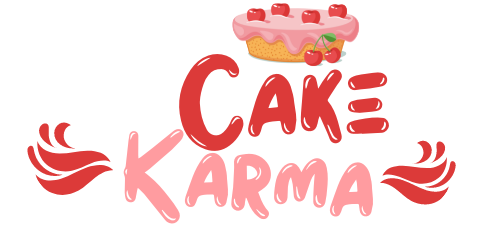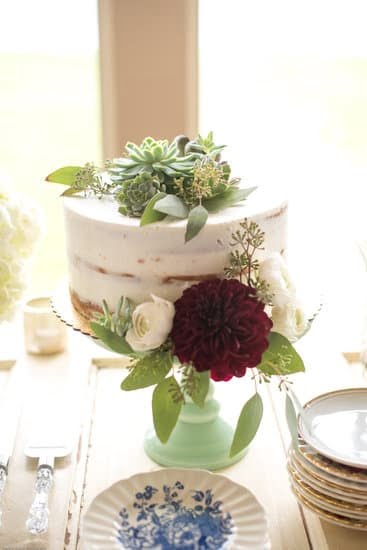Are you looking to turn your passion for baking and creativity into a rewarding career? Learning how to become a certified cake decorator can open up a world of opportunities in the thriving baking and pastry industry. As the demand for beautifully decorated and custom-designed cakes continues to grow, the need for skilled and certified cake decorators has never been higher.
Becoming a certified cake decorator not only allows you to showcase your talents and expertise but also offers a range of benefits in this competitive industry. From gaining credibility and recognition within the field to potentially commanding higher salaries and job opportunities, certification can set you apart as a professional in the world of cake decorating.
In this article, we will explore what it takes to become a certified cake decorator, from defining the role and responsibilities of a certified cake decorator to discussing educational paths, skills and techniques needed, the certification process, career opportunities, building a portfolio, and continuing education in this creative and in-demand profession. Whether you’re just getting started or looking to advance your career as a cake decorator, understanding the steps and requirements for certification is essential for success.
What Is a Certified Cake Decorator
Becoming a certified cake decorator involves more than just being able to create visually appealing cakes. It requires a set of specific skills and the ability to take on various responsibilities in order to excel in this profession. Here’s a breakdown of what it means to be a certified cake decorator and the skills needed to succeed in this field:
Role and Responsibilities
As a certified cake decorator, you will be responsible for creating visually stunning and delicious cakes for various occasions such as weddings, birthdays, anniversaries, and other special events. Your role may also involve working with clients to understand their specific design preferences, dietary needs, and budget constraints. Additionally, you will need to stay updated on the latest cake decorating trends, techniques, and tools to ensure that you are delivering high-quality products that meet industry standards.
Skills Required
To excel as a certified cake decorator, there are several essential skills that you must possess. These include:
- Proficiency in piping techniques
- Ability to work with fondant and gum paste
- Knowledge of color theory and design principles
- Understanding of flavor combinations and baking techniques
- Attention to detail and precision in decorating
Developing these skills is crucial for anyone aspiring to become a certified cake decorator. In addition to technical abilities, strong communication, time management, and creativity are also essential qualities for success in this role.
Educational Pathways
In order to acquire these skills and responsibilities necessary for becoming a certified cake decorator, individuals can pursue formal education through culinary arts programs or specialized baking and pastry schools. Apprenticeships at bakeries or pastry shops can also provide hands-on training under the guidance of experienced decorators. Furthermore, there are certification programs specifically tailored for aspiring cake decorators looking to gain expertise in this field.
Given the evolving nature of the industry how important ongoing education is for those who wish to excel in their career as a professional cake decorator. Certifications not only verify your skill sets but they also pave way for lucrative opportunities in designing wedding cakes or working with prestigious catering companies or even becoming an entrepreneur by starting one’s own business.
Educational Requirements
To become a certified cake decorator, individuals have several educational paths and programs available to choose from. These options provide aspiring cake decorators with the knowledge and skills necessary to excel in the industry. Whether through formal education, apprenticeships, or certification programs, each route offers unique benefits and learning opportunities.
Formal Education
Formal education in pastry arts or culinary arts can provide a comprehensive foundation for those seeking to become certified cake decorators. Many culinary schools offer specialized programs in baking and pastry arts that cover essential skills such as cake decorating, chocolate work, and sugar crafting. These programs often include hands-on training in professional kitchens and may lead to an associate or bachelor’s degree upon completion.
Apprenticeships
An apprenticeship is another valuable path for individuals interested in becoming certified cake decorators. Aspiring decorators can gain practical experience by working alongside experienced professionals in a bakery or pastry shop. Apprenticeships allow individuals to learn on the job, refine their skills under the guidance of mentors, and gain insight into the day-to-day operations of a professional kitchen.
Certification Programs
For those who prefer a more focused and accelerated approach to becoming a certified cake decorator, dedicated certification programs are available. These specialized programs often offer intensive training specifically tailored to cake decorating techniques and skills. Certification courses may cover topics such as piping techniques, fondant work, gumpaste flowers, and sculpting edible decorations. Upon completion of the program, individuals may obtain a certificate as evidence of their expertise in cake decorating.
No matter which educational path an individual chooses-whether formal education, apprenticeships, or certification programs-the goal remains the same: to acquire the necessary knowledge and expertise required to pursue a successful career as a certified cake decorator. Each option offers unique advantages and opportunities for growth in this creative and dynamic profession.
Skills and Techniques
Becoming a certified cake decorator requires mastering a variety of essential skills and techniques. These abilities are essential for creating stunning, professional-quality cakes that meet the high standards of the industry. Whether you are pursuing formal education, an apprenticeship, or a certification program, gaining proficiency in these areas is crucial to your success as a cake decorator.
Here are some important skills and techniques that aspiring cake decorators should focus on mastering:
- Piping: Learning how to pipe icing is a fundamental skill for any cake decorator. It involves using a piping bag and various tips to create different patterns, textures, and decorations on cakes.
- Fondant Work: Working with fondant allows decorators to create smooth, polished finishes and intricate designs on cakes. Understanding how to roll, drape, shape, and mold fondant is essential for achieving professional-looking results.
- Sugar Crafting: Sugar crafting involves creating edible decorations using sugar paste or gum paste. This includes making delicate flowers, intricate figurines, and other decorative elements to adorn cakes.
In addition to these specific techniques, it’s important for cake decorators to have a keen eye for design, attention to detail, and creativity in order to bring their clients’ visions to life.
By honing these skills and techniques through practice and training programs, individuals can position themselves for success in the competitive field of cake decorating.
Furthermore, it’s important for aspiring cake decorators to seek out opportunities to develop their skills through workshops and classes offered by experienced professionals in the industry. Continuously refining your abilities will not only enhance your expertise but also set you apart as a skilled and knowledgeable professional in the field.
Certification Process
Becoming a certified cake decorator involves going through a process that demonstrates your skills and knowledge in the art of creating beautifully decorated cakes. The certification process typically includes several steps, including the application process, examination, and continuing education requirements.
The first step in becoming a certified cake decorator is to research and select a reputable certification program. Many culinary schools, professional organizations, and industry associations offer certification programs for aspiring cake decorators. These programs often have specific requirements that must be met before applying, such as completing certain courses or having a minimum amount of experience in the field.
Once you have chosen a certification program, you will need to complete the application process. This may involve submitting an application form, providing documentation of your education and/or experience in cake decorating, and paying any required fees. Some certification programs also require candidates to submit a portfolio of their work or pass a preliminary skills assessment before being approved to sit for the final examination.
After successfully completing the application process, candidates for certification as cake decorators are typically required to pass an examination that tests their knowledge and skills in various aspects of cake decorating. This may include demonstrating proficiency in piping techniques, fondant work, sugar crafting, and other essential skills.
Some certification exams may also include written components that assess candidates’ understanding of food safety practices, design principles, and business ethics related to cake decorating. Once certified, cake decorators are often required to complete continuing education requirements to maintain their certification status.
| Certification Process Steps | Details |
|---|---|
| Research Certification Programs | Choose a reputable program with specific requirements. |
| Application Process | Submit an application form with documentation and pay any required fees. |
| Examination | Demonstrate knowledge and skills in various aspects of cake decorating. |
| Continuing Education Requirements | Complete ongoing education to maintain certification status. |
Career Opportunities
After completing the certification process and acquiring the necessary skills and knowledge, certified cake decorators have a wide range of career opportunities in the baking and pastry industry. Whether you prefer the structure of a bakery or the flexibility of freelancing, there are diverse paths to explore in this creative field.
Bakeries
Many certified cake decorators find rewarding careers working for established bakeries. In this setting, decorators collaborate with bakers and other pastry chefs to create custom cakes for special occasions such as weddings, birthdays, and anniversaries. The fast-paced environment of a bakery allows decorators to gain valuable experience in meeting client expectations while refining their decorating skills.
Pastry Shops
Some certified cake decorators choose to work in specialized pastry shops that focus on creating high-end desserts and baked goods. In these settings, decorators have the opportunity to showcase their creativity by designing intricate cakes and pastries that cater to a discerning clientele. Pastry shops often offer an environment that encourages artistic expression, allowing decorators to contribute their unique flair to each creation.
Catering Companies
Certified cake decorators also have the option to pursue careers with catering companies that provide services for events such as weddings, corporate gatherings, and parties. Working with a catering company allows decorators to collaborate with event planners and culinary teams to design custom cakes that complement the overall theme and vision of an event. This provides an opportunity for decorators to showcase their talents and contribute to memorable celebrations.
Freelancing
For those seeking greater independence and flexibility in their careers, freelancing as a certified cake decorator is a popular choice. Freelancers have the freedom to set their own schedules, choose their clients, and work on a variety of projects ranging from small-scale celebrations to large events. This path allows decorators to build their brand, establish relationships with clients, and express their individual style through custom cake designs.
Building a Portfolio
Building a strong portfolio is essential for showcasing your cake decorating skills and standing out in the competitive industry. Whether you are applying for a job at a bakery or seeking clients as a freelance cake decorator, having a visually appealing and diverse portfolio can make a significant impact on potential employers and customers.
When building your portfolio, it’s important to include high-quality photographs of your best cake decorating work. Showcasing a variety of designs, techniques, and styles will demonstrate your versatility and creativity as a cake decorator. Include close-up shots to highlight intricate details and textures, as well as overall pictures of the finished cakes to provide context.
In addition to showcasing finished cakes, consider including behind-the-scenes photos or videos that document your creative process. This can give insight into your work ethic, attention to detail, and dedication to delivering exceptional results. Including testimonials from satisfied clients or employers can also add credibility to your portfolio and provide evidence of your professional skills.
Lastly, make sure your portfolio is easily accessible online. Create a professional website or social media profiles dedicated to showcasing your cake decorating work. This will not only make it convenient for potential employers or clients to view your portfolio but also demonstrate your proficiency in utilizing digital platforms for marketing and self-promotion.
| Tips for Building a Strong Portfolio | Benefits |
|---|---|
| Include high-quality photographs of diverse cake designs | Demonstrates versatility and creativity |
| Document creative process with behind-the-scenes content | Shows work ethic and attention to detail |
| Create professional online presence for easy access | Demonstrates digital marketing skills |
Continuing Education and Professional Development
In the rapidly evolving and competitive field of cake decorating, it is crucial for certified cake decorators to stay current with the latest trends, techniques, and technology. This can be achieved through continuing education and professional development opportunities, such as attending workshops, participating in competitions, and pursuing advanced certifications. By actively seeking out these learning opportunities, cake decorators can expand their skill set, enhance their creativity, and remain relevant in the industry.
Workshops are a valuable resource for certified cake decorators to learn new techniques and refine their existing skills. These hands-on learning experiences provide an opportunity to work directly with industry professionals, gain insights into emerging trends, and network with peers. Whether it’s mastering the art of sculpting edible figures or learning innovative airbrushing techniques, workshops offer a wealth of knowledge that can elevate a decorator’s expertise to new heights.
Participating in cake decorating competitions is another effective way for certified decorators to hone their craft and showcase their talent on a larger stage. Competitions not only serve as a platform to receive recognition for exceptional work but also offer valuable feedback from experienced judges. By pushing themselves to create innovative designs within specific themes or constraints, decorators can push their creative boundaries and distinguish themselves in the industry.
Furthermore, pursuing advanced certifications is an excellent way for certified cake decorators to demonstrate their commitment to excellence and continuous improvement. Advanced certifications often focus on specialized areas of cake decorating, such as sugar flower crafting or wedding cake design. By obtaining these additional credentials, decorators can position themselves as experts in niche areas of the field, which can lead to exciting career opportunities and increased professional credibility.
Ultimately, staying current in the industry through continuing education and professional development not only benefits individual certified cake decorators but also contributes to the overall advancement of the profession as a whole. By investing in ongoing learning opportunities and striving for excellence, decorators can inspire others within the industry while elevating the standards of cake decorating craftsmanship.
Conclusion
In conclusion, becoming a certified cake decorator is a rewarding and fulfilling career choice for those passionate about baking and creating edible works of art. The demand for skilled and certified cake decorators continues to grow, presenting numerous opportunities for employment and career advancement in the industry. By obtaining certification, individuals can demonstrate their expertise and dedication to the craft, making them more competitive in the job market and better positioned for success in this creative field.
To become a certified cake decorator, individuals should first acquire the necessary skills and techniques through formal education, apprenticeships, or certification programs. These avenues provide aspiring cake decorators with the knowledge and hands-on experience required to excel in the profession. Additionally, seeking out continuing education opportunities, such as workshops and advanced certifications, is essential for staying current with industry trends and expanding one’s skill set.
Furthermore, building a strong portfolio showcasing one’s cake decorating skills is crucial when pursuing employment opportunities or securing clients as a freelance decorator. A well-curated portfolio can effectively highlight an individual’s creativity, attention to detail, and proficiency in various decorating techniques. Ultimately, by following these steps and tips for becoming a certified cake decorator, individuals can set themselves up for a successful and fulfilling career in this dynamic and in-demand profession.
Frequently Asked Questions
What Qualifications Do You Need to Be a Cake Decorator?
To become a cake decorator, you typically need a high school diploma or equivalent. Many choose to pursue culinary arts or baking and pastry arts programs to gain specialized skills and knowledge in cake decorating.
What Training Does a Cake Decorator Need?
Cake decorators often receive on-the-job training or may complete an apprenticeship under the guidance of an experienced decorator. Some also opt to attend technical or vocational schools that offer specific training in cake decorating techniques.
How Hard Is It to Become a Cake Decorator?
Becoming a cake decorator requires dedication, attention to detail, and creativity. While it may not require formal higher education, mastering the art of cake decorating takes practice and patience. Like any skill, it can be challenging but also rewarding for those passionate about creating beautiful and delicious works of art.

Welcome to our cake decorating blog! My name is Destiny Flores, and I am the proud owner of a cake decorating business named Cake Karma. Our mission is to provide delicious, beautiful cakes for all occasions. We specialize in creating custom cakes that are tailored specifically to each customer’s individual needs and tastes.





